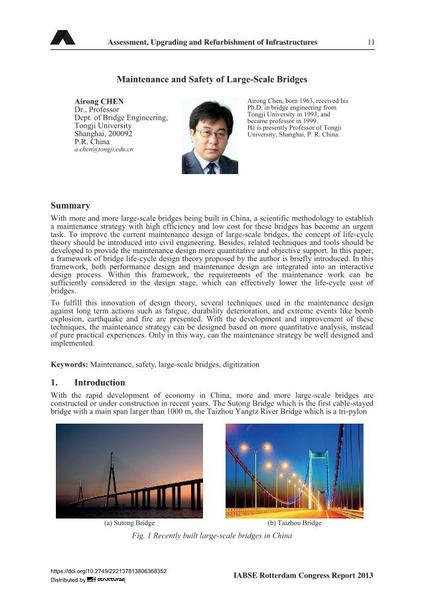|
Abstract:
|
With more and more large-scale bridges being built in China, a scientific methodology to establish a maintenance strategy with high efficiency and low cost for these bridges has become an urgent task. To improve the current maintenance design of large-scale bridges, the concept of life-cycle theory should be introduced into civil engineering. Besides, related techniques and tools should be developed to provide the maintenance design more quantitative and objective support. In this paper, a framework of bridge life-cycle design theory proposed by the author is briefly introduced. In this framework, both performance design and maintenance design are integrated into an interactive design process. Within this framework, the requirements of the maintenance work can be sufficiently considered in the design stage, which can effectively lower the life-cycle cost of bridges. To fulfill this innovation of design theory, several techniques used in the maintenance design against long term actions such as fatigue, durability deterioration, and extreme events like bomb explosion, earthquake and fire are presented. With the development and improvement of these techniques, the maintenance strategy can be designed based on more quantitative analysis, instead of pure practical experiences. Only in this way, can the maintenance strategy be well designed and implemented.
|

